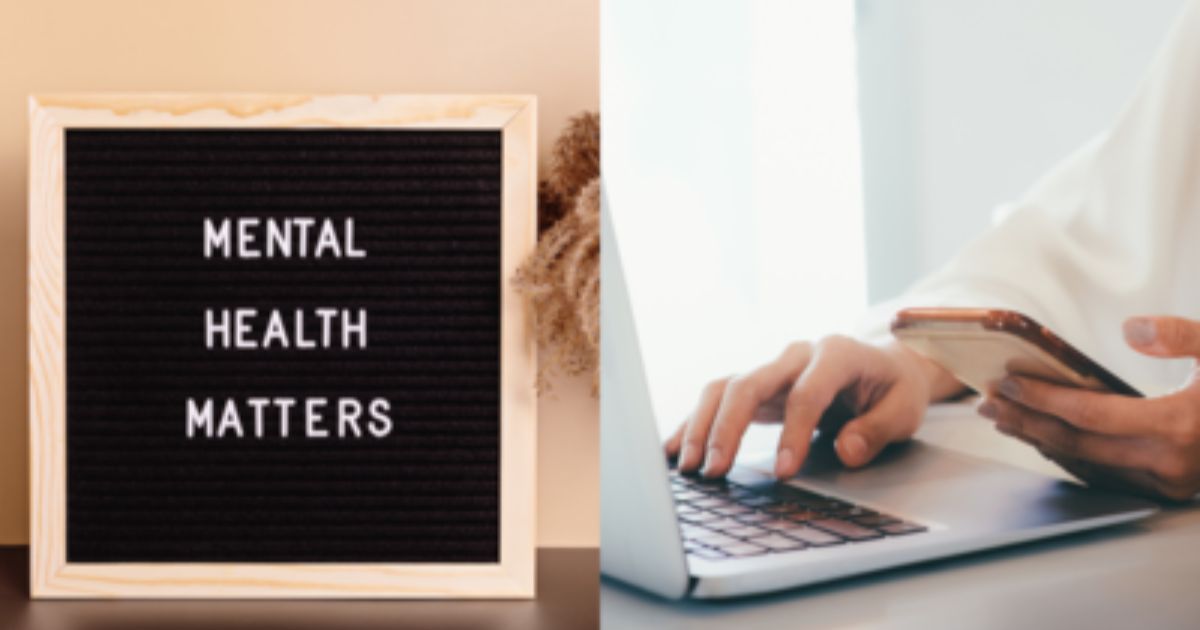In an age where information is readily accessible at our fingertips, many turn to the internet for answers to their health concerns, including mental health. A growing body of evidence suggests that sharing about mental health online practice can lead to misunderstanding and mistreatment, potentially exacerbating individuals’ mental health challenges.
The internet provides a vast repository of information, including articles, forums, and quizzes related to mental health. It’s easy to see why individuals might turn to the web when they experience symptoms such as anxiety, depression, or mood swings.
The anonymity and convenience of online research can be appealing, especially for those who may feel hesitant or stigmatized about seeking professional help.
The Pitfalls Of Sharing Mental Health Online
While the internet can offer valuable insights, it’s crucial to recognize its limitations when it comes to diagnosing mental health conditions. One of the significant drawbacks of self-diagnosis is the risk of misinterpretation.
Mental health symptoms often overlap across various conditions, and what may appear to be a straightforward diagnosis on the internet might not be accurate.
Moreover, the internet may not provide a holistic view of an individual’s mental health. It cannot account for personal history, context, or individual differences.
Relying solely on online sources can lead to a narrow perspective that may miss crucial aspects of one’s mental health.
Confirmation Bias and Anxiety
Confirmation bias, a cognitive bias where individuals seek out information that confirms their preexisting beliefs, can also come into play during self-diagnosis.
Someone who suspects they have a particular mental health condition may unconsciously seek out information that confirms their suspicions while ignoring or dismissing contradictory evidence.
For example, an individual experiencing heightened anxiety might search online for symptoms of generalized anxiety disorder.
As they read about symptoms such as excessive worry and restlessness, they may start to believe that they indeed have the condition. This confirmation bias can intensify anxiety and lead to a self-fulfilling prophecy.
The Danger of Misdiagnosis
One of the most significant concerns about self-diagnosis is the potential for misdiagnosis. Mental health conditions are complex and often require a comprehensive assessment by a qualified mental health professional.
Self-diagnosing can lead individuals down the wrong path, potentially resulting in inappropriate or ineffective self-treatment.
Misdiagnosis can have serious consequences, such as delaying access to proper treatment or even exacerbating symptoms. It can also create unnecessary distress and anxiety, as individuals grapple with the burden of a potentially inaccurate diagnosis.
The Importance of Professional Assessment
To avoid the risks associated with self-diagnosis, seeking help from a mental health professional is crucial. These trained experts can provide a comprehensive evaluation, taking into account an individual’s history, symptoms, and context.
A professional diagnosis forms the basis for an appropriate treatment plan tailored to the individual’s needs.
Additionally, mental health professionals can guide individuals toward evidence-based treatments, such as therapy or medication, if necessary. They can also offer essential support and resources for managing mental health challenges.
Promoting Mental Health Literacy
While self-diagnosing mental health conditions online can be problematic, promoting mental health literacy and awareness is essential.
Encouraging individuals to educate themselves about mental health, recognize the signs of distress, and seek professional help when needed is vital.
Mental health organizations and healthcare providers can play a role in providing accurate and reliable online resources for individuals seeking information about mental health.
These resources should emphasize the importance of professional assessment and treatment while offering guidance on where to find qualified help.
In conclusion, while the internet can be a valuable source of information, self-diagnosing mental health conditions online carries significant risks.
Misunderstanding, confirmation bias, and the potential for misdiagnosis can lead to unnecessary distress and mistreatment.
To safeguard mental health, it’s essential to encourage professional assessment and promote mental health literacy, ensuring that individuals have access to accurate information and appropriate support.




























